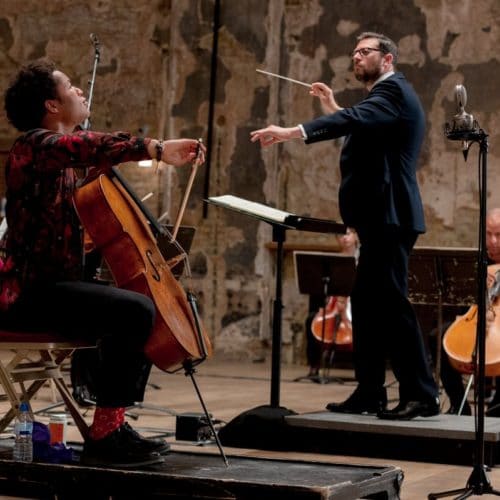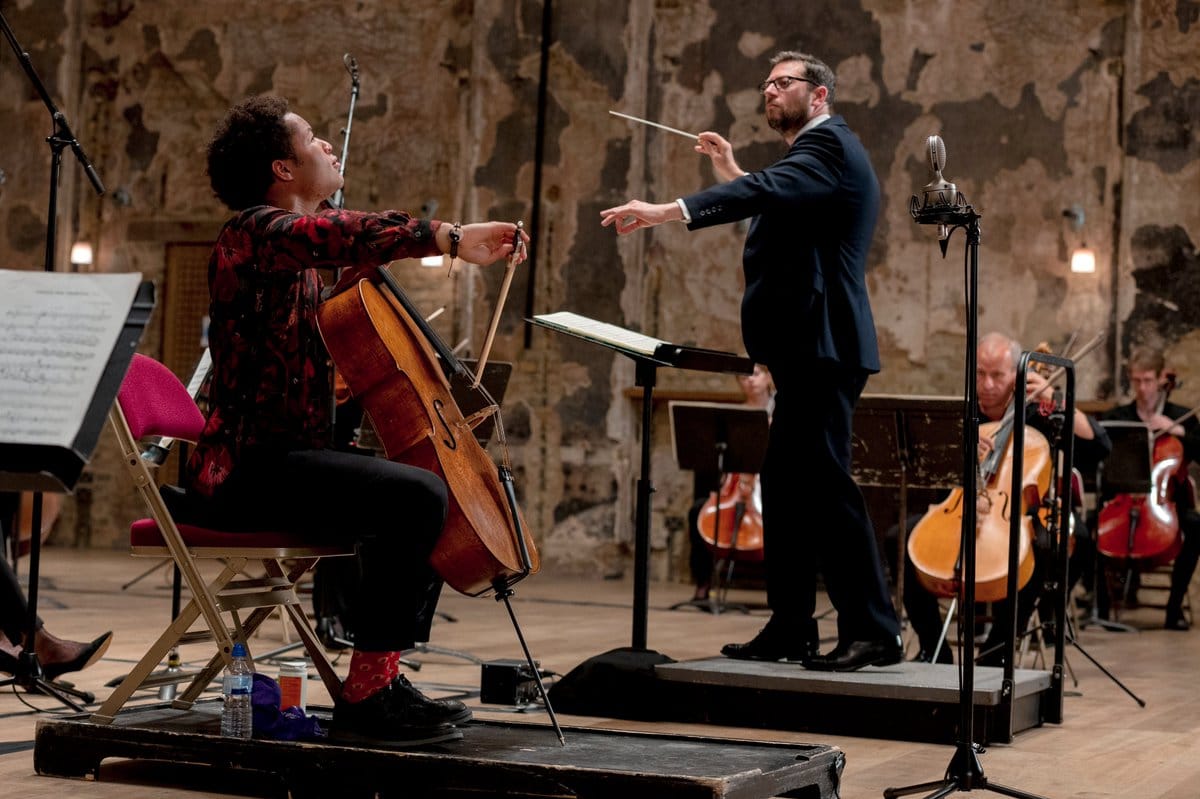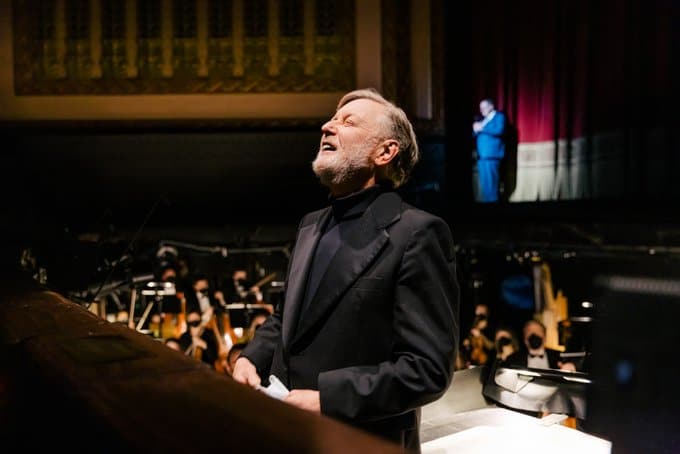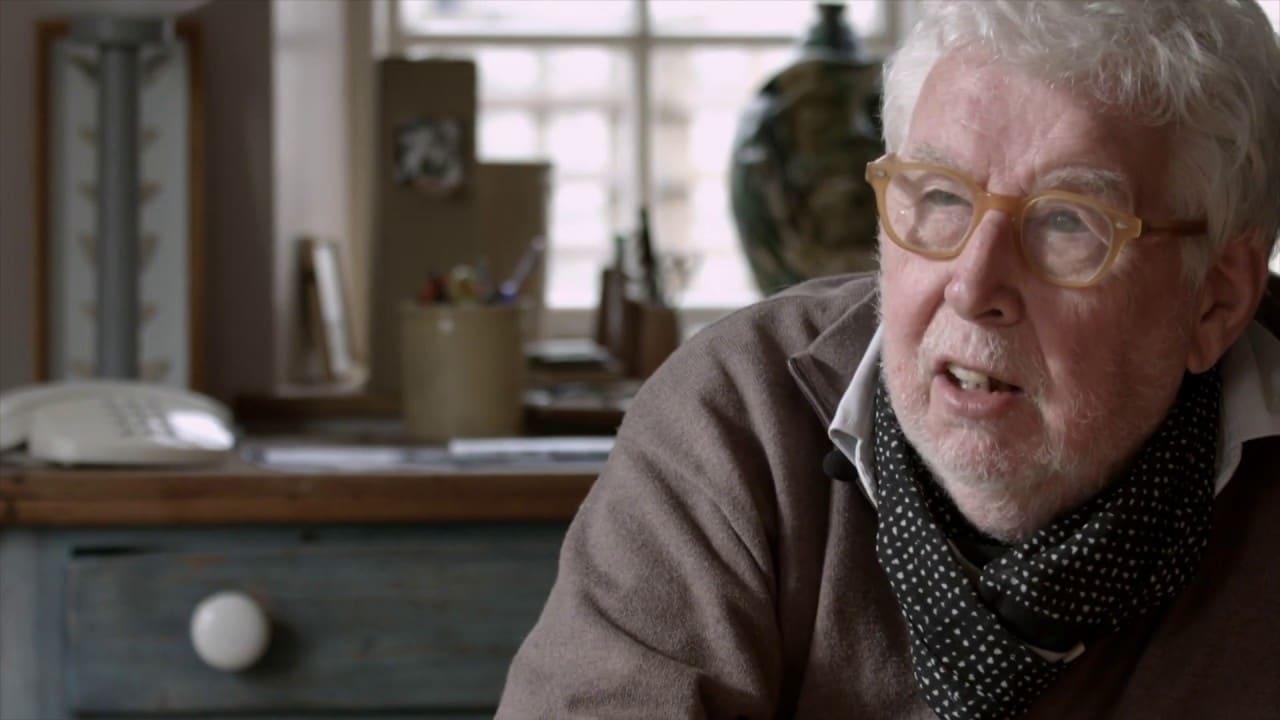London orchestra plays unmasked and indoors
mainThe Philharmonia has given the first of three streamed concerts from the Battersea Arts Centre.
The players are distanced, but only the conductor – John Wilson – is masked. And he unmasks once the music begins.
In Boris’s Britain no-one knows what is safe.
Nice performance, though.







Must be ok then.
(we can lose the odd musician to Covid..there’s loads queuing up to take their place).
Brave new world.
And best wishes to you too.
If you can sit side by side next to a complete stranger while flying from one European country to another, and both of you are wearing masks, why can’t you do the same in an air-conditioned auditorium To listen to a concert for a similar length of time? The absurdities of what is safe and what isn’t are endless…..
They aren’t wearing masks.
It’s the audience who are being denied the right to sit in an auditorium, not the players.
The thing is that the science on Covid-19 and plane passengers is different from audiences in a concert hall/theatre. In the former transmission is almost impossible, unless after a few gins you tear off your mask and snog the person next to you who (damn!) happens to be a carrier; in the latter the experts think that transmission is easier. I must say though, I do think we should be allowed to decide our own levels of risk: I would attend Christian Gerhaher’s Wigmore recital in September because I am a fan. I’d wear a face mask and have hand sanitizer with me, and I don’t think that I’d be putting myself at any more health risk than crossing a busy road. It’s academic though because in September I’m flying out to Spain to stay with friends for a lengthy holiday.
Well, the UK government is quite happy for its citizens to subject themselves to risk when stock exchange-listed entities (in which the well-heeled have stakes) and their share prices are at threat. Airlines, not orchestras, mostly fall into this category.
“in which the well-heeled have stakes”
And thousands of ordinary people with private pensions.
Good for them!
You can start the countdown until members of the Philharmonia come down with the Corona virus.
Very stupid and also sets a bad example for others.
Very nice performance.
In Britain we know exactly what is and is not ‘safe’, which is why, in London, washing one’s hands, not touching one’s face between washes and social distancing has worked so effectively that Covid-19 has dramatically receded. This was acknowledged by Kate Bingham, Chair of the UK’s Vaccine Taskforce, on this morning’s ‘Today Programme’ (BBC R4). What these musicians are doing is safe and has been known to be safe for some time.
Absolutely safe and social distancing the key element. We are not Korea.or China, and most Brits have common sense and aware of all the mental illness that has attacked people long before the dangerous virus.
In Britain we know what is and isn’t safe?
65+k excess deaths.
Bravo.
The UK has the 3rd highest covid death toll in the world after the US and Brazil. There were many things that they have done/not done that were criticized in hindsight for causing many unnecessary deaths. No one knows “exactly what is and is not safe”, especially the UK. At this point, research is ongoing but the consensus is that wearing masks indoor is effective and imperative to reduce the risk of transmission. Let’s try to move away from the mentality of something being “safe” “unsafe”. This is not a black/white matter, it’s about probability and risks, and we have to take a nuanced approach to consider the collective good that will enable us individuals to thrive.
I can’t understand why you have such a problem with what is safe and unsafe, the evidence is there in the history of viral epidemics in the 20th century. For you to say that ‘we should move away from the mentality of something being ‘safe’ ‘unsafe” is frankly ridiculous and dangerous. It is how we save lives and get the economy going again and people back to work, including musicians. Yes, the UK has a high mortality rate – although how such data is calculated is open to question c.f. the debate around PHE’s criteria as opposed to Scotland & Wales. The vast majority of infections occurred in care homes and NHS hospitals not in the community, and because the UK government(s) booted around twenty thousand unwell elderly out of NHS hospitals and into care homes they killed around 17,000 of them. That is why we have a mortality rate of 1.6. Another key factor is that there was no test/trace/isolate system in place in the UK, as in Germany where the mortality rate was 0.1., for which the UK government is to blame not the virus, which didn’t suddenly morph into a seasonal cold-type coronavirus just for Germany. There is no reason at all to think that what the Philharmonia did was dangerous – unless everyone engaged in group hugs after the recording. Social distancing works!
Stephen, you make good points. I want to clarify that I am discouraging a black and white view of safe vs unsafe, but obviously not the issue of safety all together. Instead, we need to think in terms of risk assessment and likelihood/probability of things: to what extent is it safe, what is the risk, how much is the risk, and how to balance the cost/benefit of measures to be taken?
Research continually uncovers new findings from updated data, and at this point it is safe to say that no one knows exactly all the factors that go into covid infection and its consequences: Nobody knows why Japan has been able to avoid chaos when in fact the government has done almost everything wrong; Hong Kong was the model nation until now, where the second wave is hitting them with a vengeance, somehow eluding the strict contact tracing system, to name a few.
As you say, we know that social distancing works, but so do other measures in different circumstances to different extents. We now know with certainty that airborne transmission is a significant route of infection indoors in places like restaurants, places of worship, and concert halls. In such cases, aerosols stay afloat for hours, and depending on the airway, infect people much farther away than the recommended social distance. Given this risk, it is only wise to take simple precautions like wearing masks on top of the social distancing, as masks do avoid spreading the virus. Countries taking strict measures on masks are doing better, and we need to focus on how much we can reduce the risk, not whether something is safe or totally unsafe.
Thanks for your comment, David. I’d just say that airborne transmission via aerosols in enclosed spaces is not thought to be a significant factor in infections outside of clinical environments. That’s from what I have just read online, anyway. And in London where I live we have been banging around in shops and supermarkets for last four months without either us or the staff wearing masks and the community infection rate has consistently fallen & is now very low. I’m a great supporter of grey areas & my instincts are always to avoid b&w arguments and yet when it comes to Covid-19 & when so many people are unnecessarily frightened – as evidenced in some comments here – I think it is important to state when something is safe or at least no more risky than getting out of bed in the morning and heading out your front door. It is still the case that that the overwhelming majority of people who contract the virus recover, most of those had no or slight symptoms; it is now looking to be a manageable disease, like HIV (which kills one million people each year), as various treatments reduce the symptoms and the need for hospitalization. Tonight I am off to a local restaurant to dine with a few friends and in a few weeks I will be flying out to Spain. I will take all necessary precautions as demanded by law and common sense. Noli temere………….(And if I do contract Covid-19 and die that’s what I want engraved on my headstone!)
Stephen, I absolutely agree that we shouldn’t be unnecessarily afraid, and all measures and policy we take need to be assessed based on not just the benefits, but the costs (psychological, financial, social, and so forth) and we must make an informed decision holistically. It appears that due to initial lack of information, disinformation, and insufficient government intervention, many people have resorted to simplified extreme views, leading them to either panic or become nonchalant/defiant.
However, especially given ongoing research on airborne transmission, I would still not describe the above situation of the symphonia as perfectly safe. There have been many case studies beyond clinical environment that demonstrate its significance. (Perhaps you’ve heard about the choir in Seattle, restaurant in China, office in Hong Kong, Bus in Hunan, etc.). They all demonstrate how distance was not the only factor but rather the airway, and WHO has recently reversed its position on aerosol infection. Furthermore, there are case studies nowadays of the reverse, where wearing masks may have prevented cluster infections (2 infected hairdressers not transmitting to any of their 139 clients, possibly due to all of them wearing masks, for example).
It’s true that infection rate has been receding in many places of the world, and although social distancing appears to be a great factor, it may also be due to other reasons (where I live, it has gone down despite relaxing social distancing). At this point, I don’t think we can say for certain that anything is absolutely safe, and given that wearing masks during an orchestral performance is relatively harmless, I think it is something everyone should seriously consider. It also functions as a form of signalling and raising awareness.
Although I can understand the argument that this disease appear manageable, it is also only manageable because nations and their citizens in most part have taken serious measures and is continually trying to address it. How manageable it is also varies from nation to nation. I don’t believe a comparison to HIV is accurate, as deaths from AIDS nowadays depends on the long years of treatment/non-treatment, whereas that is not how Covid works.
But thank you for this important discussion on the difficulty of drawing the fine line between being unnecessarily afraid and taking necessary precautions. Given the global scale of this epidemic with no vaccines or cure to date, I do err on the side of precaution. I think we are at a point where we need to lay low and reduce as much transmission and death as possible until better treatment options/vaccines are discovered. But this is the kind of discussion we need to keep having, and I am happy to adjust my position as things evolve.
In a new interview, Barenboim says he wears a mask to go into shops :
https://www.theguardian.com/music/2020/jul/09/daniel-barenboim-if-i-could-never-conduct-a-live-ring-cycle-again-i-dont-know-what-i-would-do
How interesting!
The mask interferes with my vision. Safety glasses fog up and I have a major problem descending stairs with a mask. Are musicians having a problem reading music with a mask?
They are prolonging the progress of coronavirus by sitting such ridiculous distances apart